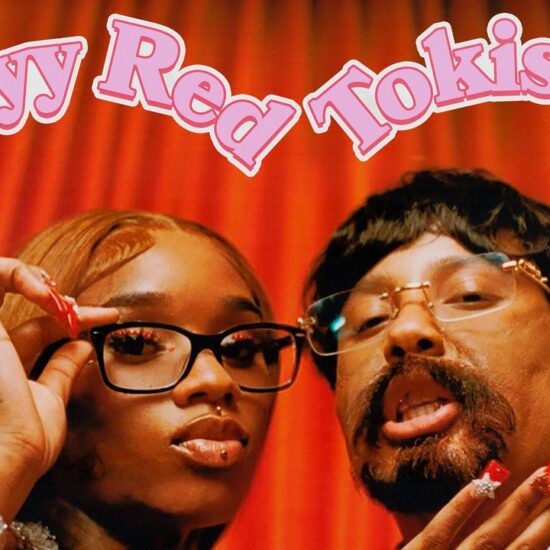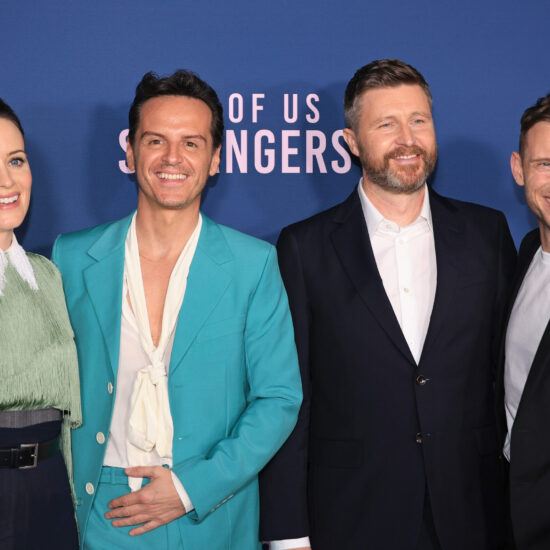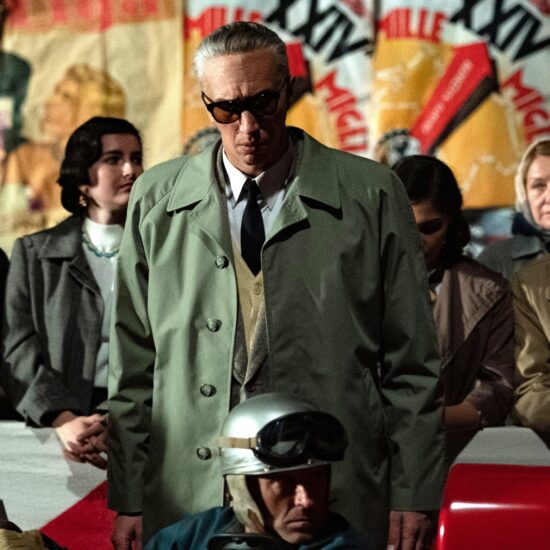
Does anyone still have an appetite for the Hunger Games? That is the question asked in and by Francis Lawrence’s “The Ballad of Songbirds & Snakes,” a prequel that’s set 64 years before the first novel in Suzanne Collins’ dystopian battle royale trilogy, and being released into theaters almost eight years since the last of the four movies that Lionsgate adapted from it.
In Panem’s war-ravaged past, the wealthy citizens of the Capitol have lost interest in watching children from the food-starved outer districts fight to the death as an annual reminder of their parents’ failed rebellion against the fascistic elite. In our war-ravaged present, Hollywood’s brief love affair with YA books about teens overthrowing literature’s goofiest totalitarian regimes has given way to the realities of a much scarier and more complicated world, and the same kids who once obsessed over the Scorch Trials or Katniss Everdeen have since discovered that Jennifer Lawrence single-handedly toppling the government is about as realistic as the hope that Lionsgate will ever get around to making that final “Divergent” film.
The moment is over in part because its movies proved unworthy of the horrors they mulched into heroes’ journeys. Such winnable stories about state-sanctioned violence, socioeconomic inequality, and the sinister propaganda that sustains them both were exposed as fairy tales to a generation forced to grow up in the shadow of school shootings, slow-moving coups, and a social media environment toxic enough to convince otherwise smart people that murdering innocent children might be morally permissible under the right circumstances. While “The Hunger Games” saga has always recognized that dehumanization is not just a byproduct of imperialism, but also the fuel that feeds its engines, the previous films adopted a good-versus-evil binary that largely absolved them from having to dramatize how mass death becomes the stuff of public spectacle.
To its great benefit, “The Ballad of Songbirds & Snakes” is denied the same contrivance; in telling a “Revenge of the Sith”-like origin story about future dictator Coriolanus Snow’s corruption from scrappy orphan to autocratic tyrant, the film has no choice but to try and unpack how people might come to believe in the moral imperative of their own power, even if only to live with something they’ve already done. That process can be rendered a bit squidgy by a hyper-faithful script that would rather take Collins at her word than question any of the soft points in her source material, but the mere attempt at tracing President Snow’s sociopathy back to its roots is enough to make this intimate epic the best installment — by far — of a franchise that I’d left for dead a long time ago.
Significantly more intimate and grounded than the previous “Hunger Games” movies (despite being longer than any of them and responsible for seeding all of their lore), “The Ballad of Songbirds & Snakes” is the rare prequel that manages to stand on its own two feet and still feel taller than the other stories it’s ultimately meant to support. Screenwriters Michael Arndt and Michael Lesslie expect audiences to know that young Coriolanus grows up to become Donald Sutherland, but it’s hardly a requirement; if newcomers have questions about the function of the Hunger Games, that only makes them more in sync with the missing citizenry of the semi-vacant Capitol, whose almost complete absence from the film makes it all too easy for us to embody their POV.
Set in a ghost city that’s still just waking up from the nightmare of a recent war (and whose Communist architecture is rendered alien under a fresh coat of unreal CGI), “The Ballad of Songbirds & Snakes” belongs to a dour place that’s yet to unlock its dystopian potential. The Hunger Games are still more of a punishment than a spectacle when the film begins, and the only people who seem to be even remotely excited about them are the hyper-privileged students at the Academy, who have no reason to think about the people from the Districts in any other context. But the future leaders of tomorrow are about to become a lot more invested in the bloodbath, as they’re soon told that they’ll each be assigned to “mentor” one of the tributes in the games, and that the school’s most prestigious prize — once based on academic merit alone — will now be awarded to the student whose pet cannon fodder makes the biggest impression before they die. PR is the new diplomacy.

That’s crushing news for poor Coriolanus, not only because he had the best grades in his class, but also because he was counting on the prize money to support his struggling family. The Snows may be a legacy in the Capitol, but they’ve fallen on hard times since the death of their patriarch, and keeping up appearances is difficult to do when you’re wasting away from starvation (Hunter Schafer is excellent as Coriolanus’ housebound cousin Tigris, whose pure and delicate heart seems almost pre-broken by the moral corruption to come). Aptly named for a Roman general who was banished from Rome because of his disdain for the Plebians, Corolanus is determined not to ruin his daddy’s good name.
Anchoring a film that’s held together by its stellar performances even when everything else feels a little thin, the flaxen-haired Blyth — so brilliant in Terence Davies’ “Benediction” — plays the future President as a quicksilver opportunist whose greatest strength is his inability to be pinned down. He has the eyes of a hero but the upturned resting face of an entitled brat who can’t smile at someone without implicating his mouth in a conspiracy (keeping up appearances is exhausting in more ways than one). He’s asexual and predatory at the same time; prettily androgynous in a way that keeps everyone on their toes, and then suddenly hyper-masculine the moment that he’s ready to step on them. No protagonist during the YA boom years was ever so watchable.
But the biggest reason why this movie sings is because Rachel Zegler is in it as Lucy Gray Baird. A star playing a star, the “West Side Story” ingénue delivers a mega-wattage encore as the female tribute selected from District 12 and assigned to Coriolanus by the Academy’s spiteful dean (Peter Dinklage), who hates him for sorely under-developed reasons. There’s a faint whiff of “She’s All That” to the idea that this angel-voiced Appalachian beauty is supposed to be some kind of cross for Coriolanus to bear (“Her!? But she has a ponytail and glasses!”), especially since the free-spirited Lucy Gray makes a spectacle of herself before she even arrives at the Capitol, but whatever.
Zegler is absolutely captivating in a “Wild Rose”-coded performance that’s equal part Southern pluck and wide-eyed terror (she inhabits Lucy Gray as a living folk legend), and watching her negotiate between the two as she faces off against Blyth is a marvel of multiplex acting. A theater kid at heart no matter her medium, Zegler knows how to play nuance big enough for the back of the room to read it all over her face, and it’s only because her Lucy Gray so palpably catches fire that we start to question the self-interest of Coriolanus’ motivation to keep her alive — a doubt that proves dynamic enough to make the movie feel volatile and alive in spite of its foregone conclusion.

The deep supporting cast also helps out in that regard. Serious actors getting a little silly has always been a perk of the “Hunger Games” franchise, but the previous films never struck the balance that seems to come so naturally to this one. They never had the benefit of being real enough to get away with such eye-rolling ridiculousness. That isn’t a problem here, in part because the ensemble isn’t asked to carry the dramatic weight of an entire trilogy; Viola Davis can be hammier than a Christmas dinner at Kenneth Branagh’s house because Dr. Volumnia Gaul — a character name so perfect that you can almost hear Ayn Rand shaking her fist at Suzanne Collins from hell — doesn’t have to keep it up across a trilogy of movies that force her character to act normal every once in a while. No, the Oscar-winning Davis is free to play the demented Gaul as a mad scientist worthy of Dr. Frankenstein, complete with a massive plume of smoke-gray hair, a lab full of killer eels, and a pair of red latex gloves that always make her hands seem covered in fresh blood. It’s wonderful; you’ll never hear a Delta commercial the same way again.
The only person who might have her beat is Jason Schwartzman, whose performance as Lucretius “Lucky” Flickerman — a weatherman and close-up magician who’s roped into being the Ryan Seacrest of murder — mines a laugh-out-loud soullessness from an ancestor of the sad clown who Stanley Tucci played in the earlier films. Capping off an incredible year that proves he’s one of the most gifted of modern American actors (see: “Across the Spider-Verse,” “I Think You Should Leave,” “Scott Pilgrim Takes Off,” “Quiz Lady,” and his career-best turn in “Asteroid City”), Schwartzman is sickeningly good as a vacuous family man whose ability to compartmentalize offers a perfect microcosm of all the world’s evils, and his catchphrase — “see what happens when you do stuff?” — gradually becomes the kind of meaningless but also mega-loaded bon mot that wouldn’t be out of place in a Wes Anderson movie. Undaunted activist Sejanus Plinth (Josh Andrés Rivera) is one of the only characters who accepts the challenge of Lucky’s catchphrase, and, well… you’ll see what happens when he does stuff.
“Ballad of Songbirds & Snakes” doesn’t push the propaganda angle quite as hard as its predecessors, but Schwartzman helps ensure that it probes much deeper, as he embodies the spectacle of dehumanization as the host of a television broadcast where the cameras are shaped like guns. The “Hunger Games” franchise would like to believe that violence is the byproduct of subjugation, and not something that only subjugation can tame, but Lucky’s character — even in his limited role as comic relief — comes to reflect the idea that evil is an aberrant choice that sells itself as a natural state of affairs. Not the worst lesson for Hollywood to push on young moviegoers in the fall of 2023.
The spectacle of the games themselves proves underwhelming, and struggles to find the same tonal balance that Lawrence finds with his cast. The film’s brutalist design and desaturated color scheme invite the battle royale to be grittier and more realistic than we’ve come to expect, and the tragic fates that befall many of these children — one of them in particular — are surprisingly unsparing. But they’re also sanitized for the purposes of a PG-13 rating, (the Capitol’s TV landscape is more “American Idol” than Roman Colosseum), and often come at the expense of stock characters who sap the bloodsport of its queasiness (and its blood). And because the screenwriters were either not willing, not able, or not allowed to imagine a more convincing resolution for the Games, they end on a note of absurdity that typifies all of the awful YA tropes the rest of this movie is able to avoid. And I’m not just talking about the howler of a scene in which a character suffering from rabies-induced hydrophobia is so terrified of water that he reacts to it like a vampire exposed to sunlight.
Fortunately, the end of the Games arrives just after the mid-point of this 157-minute film, which is split into three distinct parts in defiance of the Hollywood logic that would sooner split it into three different films. The last act of “The Ballad of Songbirds & Snakes” is a sharp tonal and geographical pivot away from the first two, and while the sudden downshift from pubescent mass-murder to an airier and more ruminative stretch of the story risks seeming anticlimactic, the final hour of the movie is where all of its biggest ideas come home to roost, and where Blyth and Zegler are given the most space to shine. As a fun bonus, it’s also where Burn Gorman shows up.
The trouble is that Coriolanus’ inevitable heel turn — while appreciably loathsome — becomes increasingly hard to track as opportunity presents itself to him, and that’s a sticky problem for a story about the slow rot of this character’s soul. The YA genre isn’t especially welcoming to the kind of ambiguity that “The Ballad of Songbirds & Snakes” forces upon its protagonist (is Coriolanus embracing his nature or defiling it?), and the situation isn’t helped by the film’s mistaken belief that it’s laid the groundwork for Coriolanus’ corruption by virtue of something he does in self-defense.
It’s a testament to the unmoored scariness of Blyth’s performance that Coriolanus’ final descent into madness allows for so many possible explanations. The most believable one is that being evil simply becomes easier for him than being happy; it’s less of a challenge to his reality, and to the system that conditioned it. “Snow always lands on top,” says the family motto. By the end of this rich and unsettling origin story, Coriolanus will no longer care about what’s underneath. He isn’t a contestant in the Hunger Games — he’s the ultimate prize. Enjoy the show.
Grade: B+
Lionsgate will release “The Hunger Games: The Ballad of Songbirds & Snakes” in theaters on Friday, November 17.















